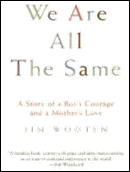题目内容
People use their mouths for many things. They eat, talk, shout, and smile. So there are many expressions about mouth. For example, if you say things about a person, the person will be unhappy and say “Do not bad mouth me.”
Sometimes, people say something to a friend or family member that later they regret they hurt that person’s feelings. The speaker might say: “ I really put my foot in my mouth this time.” If this happens, the speaker might feel down in the mouth.
Information is spread through the mouth. This is general communication people, like friends talking to each other. “How did you hear about that movie?” Someone might ask. The may be : “Oh, by word of mouth.” A more official way of getting information is through a company or government mouthpiece.
Sometimes, a person has a bad or unpleasant with another person. He might say: “It left a bad taste in my mouth.” Or a person might have a very experience, like being chased by an angry dog. He might say: “I had my in my mouth.”
Some people have lots of money because they were into a very rich family. You might say such a person “was born with a silver spoon in his mouth. ” And this rich person is the opposite of a person who lives from hand to mouth.
Sometimes, people say something to a friend or family member that later they regret they hurt that person’s feelings. The speaker might say: “ I really put my foot in my mouth this time.” If this happens, the speaker might feel down in the mouth.
Information is spread through the mouth. This is general communication people, like friends talking to each other. “How did you hear about that movie?” Someone might ask. The may be : “Oh, by word of mouth.” A more official way of getting information is through a company or government mouthpiece.
Sometimes, a person has a bad or unpleasant with another person. He might say: “It left a bad taste in my mouth.” Or a person might have a very experience, like being chased by an angry dog. He might say: “I had my in my mouth.”
Some people have lots of money because they were into a very rich family. You might say such a person “was born with a silver spoon in his mouth. ” And this rich person is the opposite of a person who lives from hand to mouth.
| 小题1: |
|
| 小题2: |
|
| 小题3: |
|
| 小题4: |
|
| 小题5: |
|
| 小题6: |
|
| 小题7: |
|
| 小题8: |
|
| 小题9: |
|
| 小题10: |
|
小题1:B
小题2:C
小题3:A
小题4:D
小题5:B
小题6:B
小题7:C
小题8:A
小题9:D
小题10:D
试题分析:这篇短文主要介绍了人们在做许多事情时都用到嘴。所以有许多关于嘴的表达,像不要说我坏话,口口相传等。
小题1:考查动词及语境的理解。根据上句人们好多的事情都用嘴,他们吃说喊唱微笑,都用嘴A. dance 跳舞B. sing唱歌C. walk步行 D. think思考。根据句意,故选B。
小题2:考查形容词及语境的理解。A. beautiful 美丽B. nervous 紧张C. bad 坏D. crazy疯狂。根据句意如果你说了某个人的坏话,这个人会不高兴,说“不要说我坏话,故选C。
小题3:考查连词及语境的理解。A. because因为B. so所以C. and 和D. until直到。根据句意之后他们后悔了因为他们伤害那个人的感情,故选A
小题4:考查副词及语境的理解。A. never从不B. seldom很少 C. sometimes有时D. often经常,根据句意,信息经常通过嘴传播。
小题5:考查介词及语境的理解。这是人和人之间的一般交流。A. with 和B. between 在两者之间C. during 在……期间D. on在……上。根据句意,故选B
小题6:考查名词及语境的理解。A. letter信B. answer 回答C. key钥匙D. report报道,根据句意,回答可能是口口相传,故选B。
小题7:考查名词及语境的理解。A. experiment试验B. expression表达C.experience经历D. explanation解释。根据句意有时,一个人与另一个人有不愉快的经历,故选C。
小题8:考查形容词及语境的理解。A. frightening可怕的B. surprising令人吃惊的C. pleasing 令人高兴的D. exciting令人兴奋的。根据后文被恶狗追,可知是可怕的经历,故选A。
小题9:考查名词及语境的理解。A. eye眼睛B. tongue舌头C. finger手指 D. heart心,根据上下文可知是我的心快跳出来了。故选D。
小题10:考查动词及语境的理解。A. taken 带走B. brought带来C. grown成长D. born出生。根据句意,有些人有很多钱,因为他们出生在一个非常富裕的家庭。故选D

练习册系列答案
 名校联盟快乐课堂系列答案
名校联盟快乐课堂系列答案 黄冈创优卷系列答案
黄冈创优卷系列答案
相关题目
